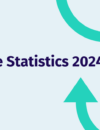
A study published this week by the Harvard Business Review offers some startling but perhaps unsurprising facts about the challenges of hiring a gender diverse workforce.
The article highlights the inequality of women board members in the US: that there are more CEOs named John (5.3%) and David (4.5%) than there are CEOs who are women (4.1%). It highlights how gender bias within the interview process skews the final result. Shockingly, if there is only 1 woman in your candidate shortlist, statistically she will not be hired.
In our experience of recruiting within the UK Technology industry, this is not simply an American phenomenon and is a problem all the way from entry level to board level.
The issue of bias (whether conscious or unconscious) is the key stumbling block to hiring a diverse workforce. This is evident even before the interview stage; in the writing of job specs (requests for code ninjas, chief’s and rockstars) and in the subsequent provision of candidates from agencies.
This is particularly of note in the UK IT sector; an industry in which women make up only 17% of the workforce. IT recruitment is a similar story; a male dominated industry with a work hard/sell hard/play hard culture, which itself controls the selection process. If the recruiter is biased (whether consciously or not) in their selection of candidates, then it is the agency who are (statistically) influencing the final outcome of whether a man or a woman is ultimately hired.
Often recruiters are asked to try and find female candidates to help balance out male-dominated tech teams. However, in an industry where KPIs are king and time is money, recruitment businesses are often loathe to afford their consultants the extra time necessary to search for minority candidates who may not be so easy to find.
We have witnessed firsthand both the conscious and unconscious bias of our industry in regard to submitting female applicants for roles, and there is no easy solution. Companies must be committed to change and willing to put in extra time and effort to their talent acquisition process, to review what could be off-putting to women and to partner with agencies dedicated to helping make a positive change and not only a quick buck.
Agencies must educate their staff to not only pay lip service to diversity, but to practice what they preach. We must provide a more diverse pool of candidates to our clients, to be genuinely open-minded and not to assume ‘David’ or ‘John’ will always be the best person for the job.
Kiri O’Brien and Kirsty Trafford-Owen





